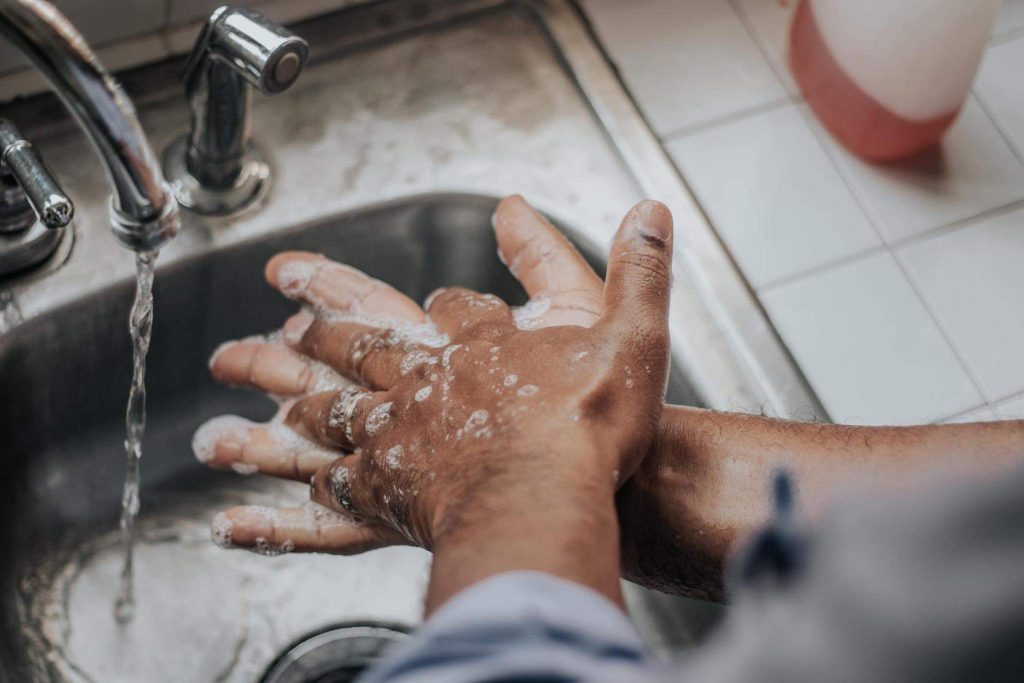
I get it. College students are busy. Always being on the move and trying to maximize your time inevitably leads to shortcuts in the name of efficiency. However, there is really no excuse for the mortifying lack of hygiene that I have witnessed in Jewell’s public bathrooms.
As someone with obsessive-compulsive disorder, you might imagine the absolute horror I experience as I begrudgingly walk into these common areas. With mysterious liquid all over the sink basin, used paper towels crumpled up in the corner and the mind-numbing ubiquity of a one-millisecond-hand-washing technique, I often wonder how students remain blissfully unaware of the mess they create.
Public bathroom etiquette is an integral feature of society as we know it — a testament to humankind’s moral capacity as we thrive in these communities. At a place of higher education, we should expect each other to take even more care into maintaining our bathrooms, rather than settling with the absolute bare-minimum of public hygiene. In other words, we aren’t toddlers for God’s sake.
So for the students who may have forgot, here is a refresher on public bathroom etiquette:
- Always wash your hands
Regular hand-washing is recognized as one of the most effective ways to prevent infection, sickness and disease. Combined with the fact that public restrooms tend to be a hotspot for cross contamination and certain disease-causing microbes, the use of proper hand-washing techniques after using public facilities is important. To truly reap the benefits of hand-washing, you should ideally wash your hands multiple times a day — before eating, after eating,and after using the bathroom. Besides, who knows what kind of previously undiscovered mutant-microbe is thriving in the Jewell bathrooms?
Despite the dozens of students who seem to think so, running your hands under the water for five seconds does not count as hand-washing. Proper hand-washing includes wetting your hands, lathering them with soap and scrubbing for at least 20 seconds, then washing them under running water. If that sounds confusing, there are plenty of YouTube tutorials and online guides that demonstrate the process.
- Leave the space cleaner than you found it
As a “golden rule” taught in most U.S. kindergartens, it goes without saying that people who use a common space should actually help keep it clean. The messier a space is, the harder it is to inspire others to do their part. The janitorial staff already has their hands full trying to prevent our classrooms from becoming petri dishes for the new SARS-CoV-2 or influenza variant, so the least you can do is pick up after yourself.
Like hand-washing, practicing this rule is surprisingly easy: if you dribble water on the sink basin, wipe it up; if you miss the trash can with an attempted across-the-room, used-paper-towel basketball shot, pick it up; if you accidentally smear soap all over the mirror, walls and floor amid a psychotic breakdown — perhaps connect with counseling services or call 988 first — then clean it up.
- Do not be disruptive
Though not quite related to hygiene, behavior is still an important aspect of bathroom etiquette. There is nothing more awkward than using a public restroom and someone is having a loud phone conversation the entire time. Don’t be this person. Don’t be weird.
In general, use the bathroom for bathroom-related things, then leave. If you need to be in the restroom for an extended amount of time, be courteous of others. Acceptable activities include:
- using the bathroom,
- washing your hands,
- applying makeup or fixing your hair,
- brushing your teeth or other water-related hygienic routines,
- checking your fit,
- screaming with an apparent reason
- and catching your breath after running across campus so that you don’t look out of shape.
Unacceptable activities include, but are not limited to:
- eating or drinking,
- talking loudly on the phone or otherwise,
- knocking on stall doors,
- looking into stalls,
- acknowledging the large gap in the stall doors,
- playing footsies,
- singing or any act of theatrical performance,
- screaming for no apparent reason
- and playing TikTok or Youtube videos unmuted.
In all, just don’t be gross or weird in the bathrooms. Wash your hands, clean up after yourself and be aware of your actions.
